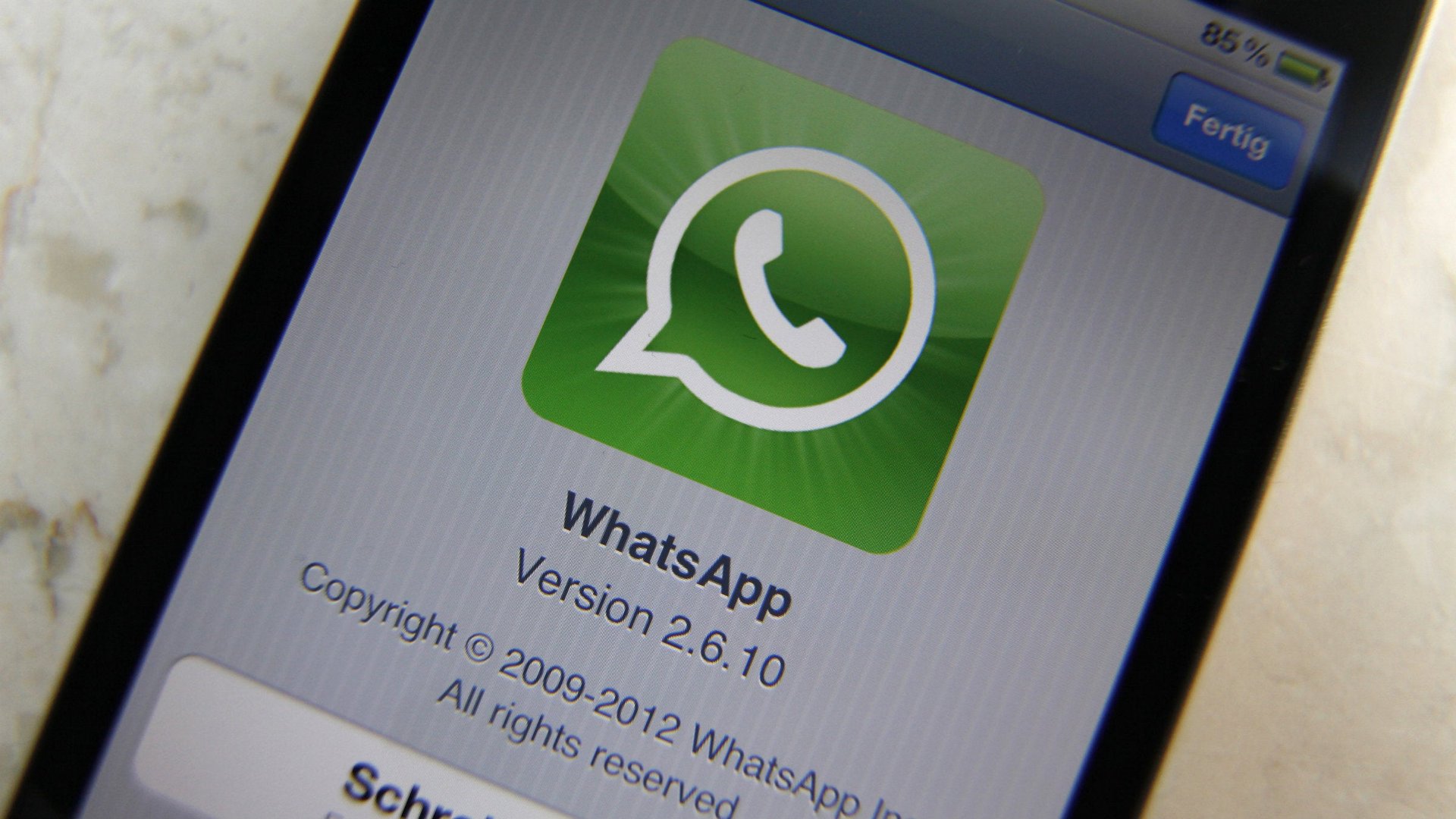Facebook just devoured another potential competitor, and added to its mobile firepower
Facebook is buying fast-growing messaging service WhatsApp for what was initially reported as $16 billion in cash and stock. Including restricted stock units to be granted to founders and employees, the total price tag works out to $19 billion (paywall).


Facebook is buying fast-growing messaging service WhatsApp for what was initially reported as $16 billion in cash and stock. Including restricted stock units to be granted to founders and employees, the total price tag works out to $19 billion (paywall).
“WhatsApp is on a path to connect 1 billion people. The services that reach that milestone are all incredibly valuable,” said Mark Zuckerberg, Facebook
The Mountain View, California, based firm was founded in 2009 by two former Yahoo executives Brian Acton and Jan Koum. Since then, the company has surged to the top of the fast-growing mobile messaging app industry. Some 450 million use the service each month and 70% of them are active on any given day, Facebook said in its official release on the deal.
The acquisition underscores Facebook’s increasing focus on its mobile business. When it went public in 2012, Facebook didn’t make any money from mobile, a factor that weighed significantly on its share price. But last quarter, the majority of its advertising revenue came from mobile for the first time.
Facebook shareholders seemed somewhat leery of the rich price Facebook paid. The social media giant’s shares slipped roughly 2.6% in after hours trading following the announcement of the merger. The purchase of WhatsApp is one of the richest in recent memory, amid a spate of Silicon Valley deal-making that included Google’s $3.2 billion acquisition of smart-thermostat maker Nest. By some reckonings, it’s the largest-ever deal for a venture-capital-backed start-up.
And it remains unclear what Facebook will actually get for the deal. The chat app’s founders have not been shy about voicing strong antipathy toward advertising-supported business models. In a December 2013 interview with the Wall Street Journal, Koum said, “We view monetization as five, 10 years down the road.”